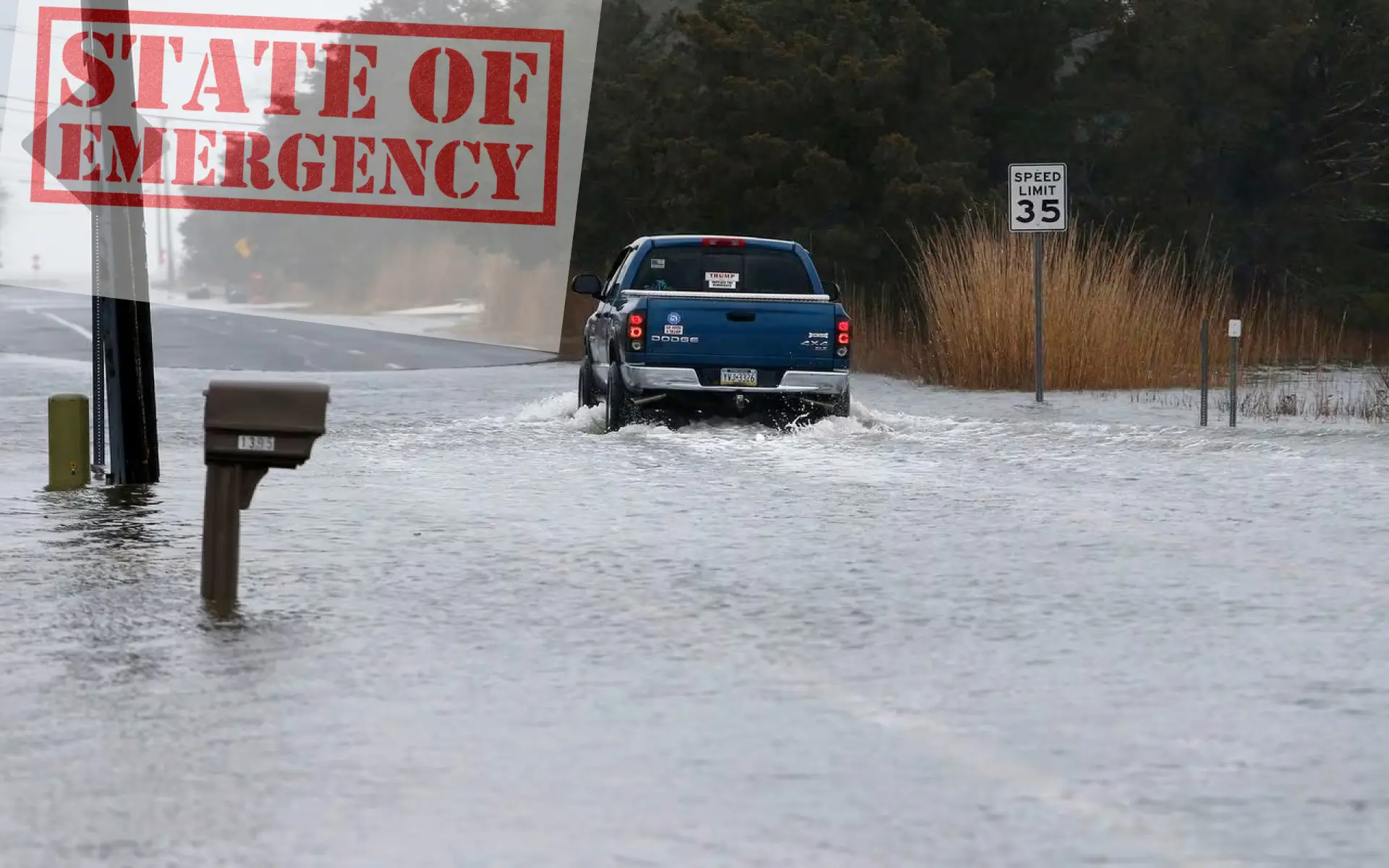
New Jersey Governor Phil Murphy has declared a state of emergency in anticipation of severe storms that are expected to bring heavy rain, high winds, and the potential for flash flooding. This decision aims to ensure the safety and well-being of residents across the state. The state of emergency, effective from 5:00 p.m. on Tuesday, January 9, will enable resources to be deployed efficiently and effectively throughout New Jersey during the storm.
A state of emergency is a proactive measure taken by the government to respond to hazardous weather conditions or potential disasters. It allows the state to swiftly allocate resources, close roads if necessary, evacuate homes, and commandeer equipment or other resources to protect public safety. The declaration also enables the state to request federal assistance or reimbursement for extraordinary expenses incurred during the emergency.
New Jersey is bracing for a major rainstorm with significant downpours and wind gusts of up to 65 mph. The storm is expected to bring between one to four inches of heavy rain, exacerbating the effects of previous inclement weather conditions experienced in December and over the past weekend. This rainfall, combined with existing snow cover in some areas, raises concerns about flash flooding and potential river, stream, and creek flooding. Residents should remain vigilant and take necessary precautions to protect themselves and their property.
Governor Murphy emphasizes the importance of not underestimating the severity of this storm. He urges all New Jerseyans, particularly those residing in coastal and riverine communities, to follow safety protocols and avoid unnecessary travel. The governor advises residents to stay off the roads unless absolutely necessary to prevent interference with emergency responders and law enforcement efforts. The safety and well-being of residents are paramount during this challenging weather situation.
READ ALSO: Tornado Warnings in Houston, Texas: Stay Prepared for Severe Weather
To stay updated on the latest weather conditions and safety information, residents are encouraged to visit the official website of the New Jersey Office of Emergency Management (ready.nj.gov). Additionally, monitoring local forecasts, warnings, and watches from the U.S. National Weather Service is vital. The U.S. National Weather Service New York covers Northern New Jersey and the New York Metro area, while the U.S. National Weather Service Philadelphia/Mount Holly provides information for Central and Southern New Jersey.
The impending storm in New Jersey brings several potential impacts that residents should be prepared for:
-
Flooding: The heavy rain and existing snow cover increase the risk of flash flooding, as well as river, stream, and creek flooding. Residents in low-lying areas and those living near water bodies should remain vigilant and take necessary precautions to protect their properties.
-
Power Outages: Strong winds, gusting up to 65 mph, can lead to downed trees and power lines, resulting in power outages. Governor Murphy anticipates that tens of thousands of power outages may occur throughout the state. Residents should be prepared for potential disruptions and have essential supplies on hand.
-
Travel Disruptions: The storm may cause travel delays and cancellations due to challenging conditions on roadways and at airports. Commuters should anticipate potentially dangerous commutes and consider alternative arrangements, if possible.
As the storm approaches, it is crucial to take the following safety measures:
-
Stay Informed: Continuously monitor weather updates and advisories from trusted sources, such as the National Weather Service and local authorities.
-
Create an Emergency Kit: Prepare an emergency kit that includes essential supplies like non-perishable food, water, flashlights, batteries, a first aid kit, and necessary medications.
-
Secure Outdoor Items: Secure or bring inside any outdoor furniture, decorations, or equipment that could be blown away or cause damage during high winds.
-
Check on Neighbors: Reach out to neighbors, especially the elderly or those with special needs, to ensure they are aware of the storm and have necessary provisions.
-
Charge Devices: Charge phones and other devices ahead of time to ensure access to communication during potential power outages.
-
Avoid Flooded Areas: Stay away from flooded roads, bridges, and low-lying areas. Do not attempt to drive through standing water, as it may be deeper than it appears and pose a significant risk.
-
Follow Evacuation Orders: If evacuation orders are issued for your area, follow them promptly and move to a safe location.
During the state of emergency, state and local authorities will deploy resources to affected areas as needed. The New Jersey Office of Emergency Management will provide updates and information regarding emergency services, shelters, and resources available to residents. Local municipalities may also offer specific guidance and assistance, so it is essential to stay tuned to local announcements and follow their instructions.
